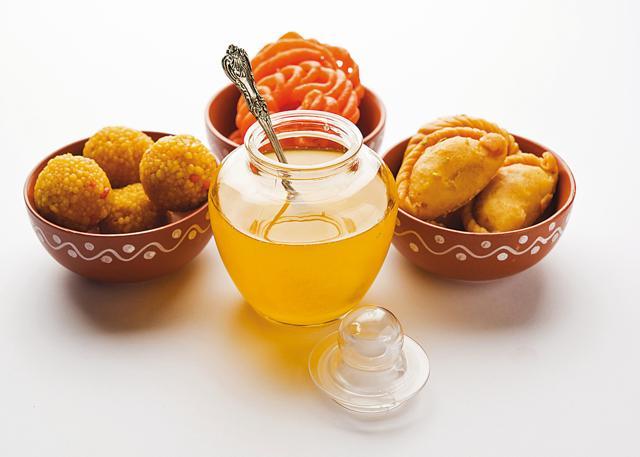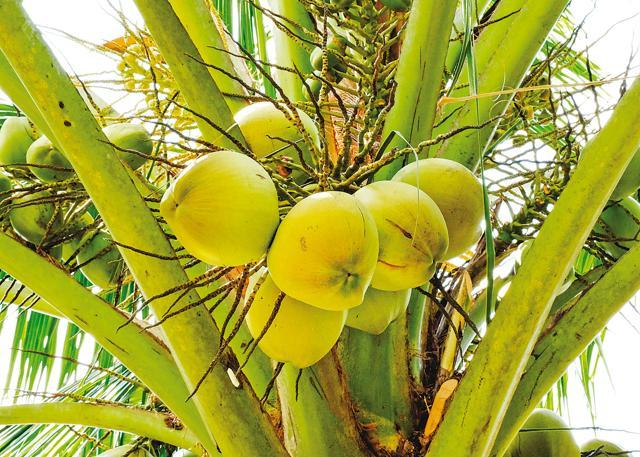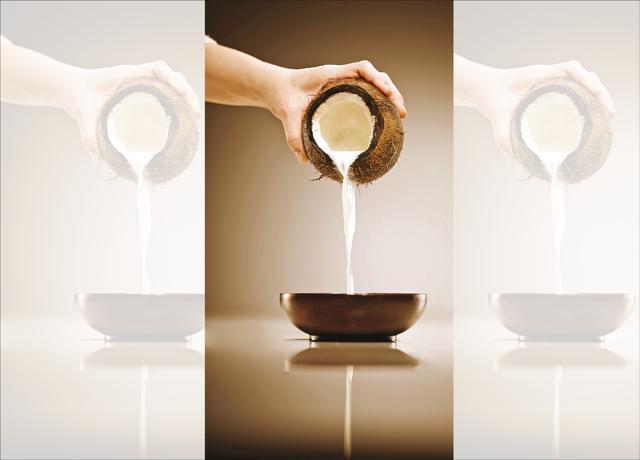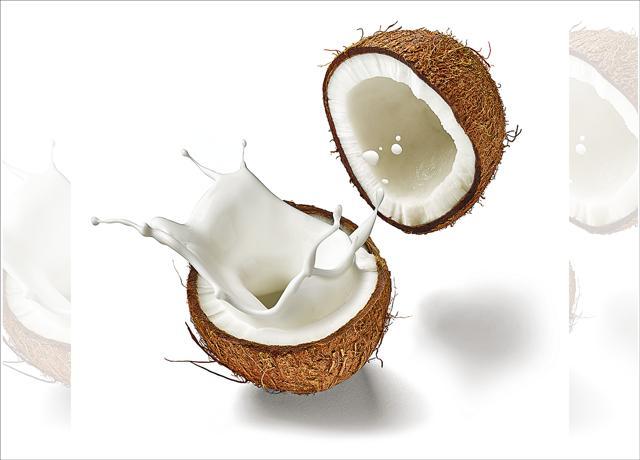Is coconut oil really poison? If you have been following the recent headlines, then you will know why I am asking the question. In a speech delivered at the University of Freiburg, the director of the university’s Institute for Prevention and Cancer Epidemiology, a Dr. Karin Michels, (who is also director of the Harvard T.H. Chan School of Public Health), described coconut oil as “one of the worst foods you can eat”. It was, Dr. Michels said, just as bad for your well-being as “pure poison.”
The speech was picked up by news agencies and by the time it turned up in our newspapers, the short version read: “Harvard Professor says coconut oil is poison.”
This caused shock and panic in India where people asked the obvious question: if coconut oil is poison then why are there so many healthy Malayalis?
Given the special place that coconut oil occupies in the diet of Kerala, it should surely have led to death or massive ill-health at the very least if it was really poison. In fact, Malayalis may well be healthier than say, North Indians.
Personally, I think Dr. Michels overstated the case and the shock-horror news headlines did not help. But to figure out what I imagine the good doctor was getting at, we need to understand the current state of our knowledge about cardiac disease and bust American myths about so-called superfoods.

For years and years (i.e. when your doctor was probably learning medicine), science operated on a plumbing model of the heart. In this model, the heart was a pump and the arteries leading out from it were pipes. If you consumed greasy foods, then this grease would accumulate in the arteries and clog the pipes. As the heart had to work harder and harder to push blood through these narrowing pipes, it got weaker and weaker and eventually you had a heart attack.
Some fats were worse than others. Fats that came from animal sources (butter, lard etc.) were called saturated fats and were to be avoided. Fats that came from plants (olive oil, sunflower oil, etc.) were usually unsaturated and less likely to harm your heart.
This orthodoxy led to the demonisation of ghee and butter, the rise in the popularity of vanaspati, margarine and eventually, to the olive oil boom.
All went well till scientists came to the conclusion that another category of fats, called trans fats were actually worse for you than butter or ghee. This category included vanaspati, margarine and the like. So we were told to go back to eating butter and ghee. The changing fat orthodoxy was tied to the great cholesterol scare. Certain foods (eggs, lobster, etc.) were high in cholesterol. They were to be avoided because cholesterol also clogged the arteries in the old heart-pump model.

Over the last decades, pretty much all of this stuff has been called into question. Scientists now concede that there is a very weak link between dietary cholesterol and blood cholesterol. At best, only around 15 per cent of the cholesterol in your body comes from your diet. And so, cholesterol-rich foods are back on the approved list.
Even the plumbing model of the heart has been discredited. It isn’t as simple as grease clogging the arteries. Various kinds of inflammation may well be a more significant cause of heart episodes.
As the orthodoxy changes every six months, the layman has a right to get confused. The problem is that doctors often pretend to know more than they really do. And the press is so hungry for shock-horror headlines that complex discoveries are trivialised.
Let’s take the so-called French paradox. For years and years, doctors would trot this out to praise the virtues of olive oil. Though this was fudged in the news reporting, all the evidence for the French paradox came from statistics not from biology.
Put simply, the French paradox was this: though the French liked a rich diet, they had the lowest rate of heart disease. How could this be so?
To explain this statistical paradox, scientists came up with all sorts of theories. It was red wine, they said, which cleared the arteries. Or it was the miracle of olive oil which contains substances that actually remove plaque from the arteries.
All this was reported again and again. Except that it was nonsense. The regions of France with the lowest incidence of heart disease were in the North, where they cooked in butter and lard and rarely used olive oil.
So yes, there may have been a statistical paradox. But scientists had no explanation for it. And in any case, French rates of heart disease are now roughly on par with the rest of Western Europe, so the so-called French Paradox has vanished.
One problem with so much of the research you will find reported is that it is not based on any understanding of how the body functions but on statistics. A group of volunteers will be told to, say, drink two glasses of red wine a day. At the end of a year, they will compare the rate of heart disease among these volunteers with either a non-wine drinking control group or the general public.
Should the wine-drinkers have even a marginally lower rate of heart disease, the headlines will declare “Red wine can stop heart attacks!”
This may or may not be true. What the headlines will obscure is that scientists will still have no idea of how the wine reduced the incidence of heart disease; the biology will remain a mystery. The following year, another group of scientists will run another statistical group study which may yield different results and a new set of headlines: “Red wine may harm your heart!”
Is it any wonder that the layperson is so confused? That we can’t understand why scientists keep changing their minds?
Faddists exploit this confusion and profit from the increasingly unconvincing tendency of doctors to act like they know everything.
Coconut oil is just the latest example. The coconut is one of the few plant-based foods to yield an oil that is a saturated fat. (That’s why coconut milk is often substituted for cow’s milk in cooking.)

For years and years, American nutritionists ran a campaign against the use of coconut oil at fast food concessions. One celebrated case involved movie theatre popcorn. If you pop your corn in your microwave at home, it is free of saturated fat. (Unless you then add butter.) But at nearly all US movie theatres, till a decade ago, the popcorn was popped in coconut oil. Even without the butter, the popcorn was rich in saturated fat from the coconut oil.
After a sustained health campaign, movie theaters agreed to stop using coconut oil and the popularity of coconut oil fell to zero in America, where it was seen as an artery-clogger.
But then, as the health establishment began to admit it did not really understand how fats affected the body, the door was left open for faddists. Last year, The Lancet, a respected medical journal encouraged faddists further by publishing a study that suggested that following a low fat diet could actually increase your risk of death by 25 per cent.
In the midst of all this confusion, faddists promoted so-called “good” saturated fats of which coconut oil was one. According to the faddists, coconut oil actually increased the proportion of good cholesterol in your body.
Now, health faddists will tell you that coconut oil will promote fat burning. The fats in coconut oil will go straight to your liver and will be turned into ketones which can treat Alzheimer’s and epilepsy. And so on.

Nearly all of these claims are dubious. It is possible that some ingredients in coconut oil are good for you, but nobody who has used it for generations (i.e. the people of Kerala) claims that it is an all-purpose superfood. And yet, people have made millions out of gullible Americans by pushing the notion of coconut oil as a superfood.
My guess is that Dr. Michels was trying to remind people that coconut oil is not a superfood but a source of saturated fat. That straightforward and largely accurate central message got lost in the din of the headlines.
But Dr. Michels also used needlessly emotive language like ‘poison’, which is just plain nonsense.
Yes, there is a case for consuming butter, ghee, animal fats and coconut oil in moderation. But they are not poisons. They are the foods that have sustained mankind for generations. When doctors condemn them and then – very embarrassingly – change their minds and backtrack, they confuse lay people. But they do even more damage to the reputation of medicine as a whole by making categorical claims based on limited knowledge.
As for coconut oil being poison, ask yourself this: is it even conceivable that the food of Kerala, the finest cuisine in India, is based on poison?
Stupid, no?
From HT Brunch, September 16 , 2018



